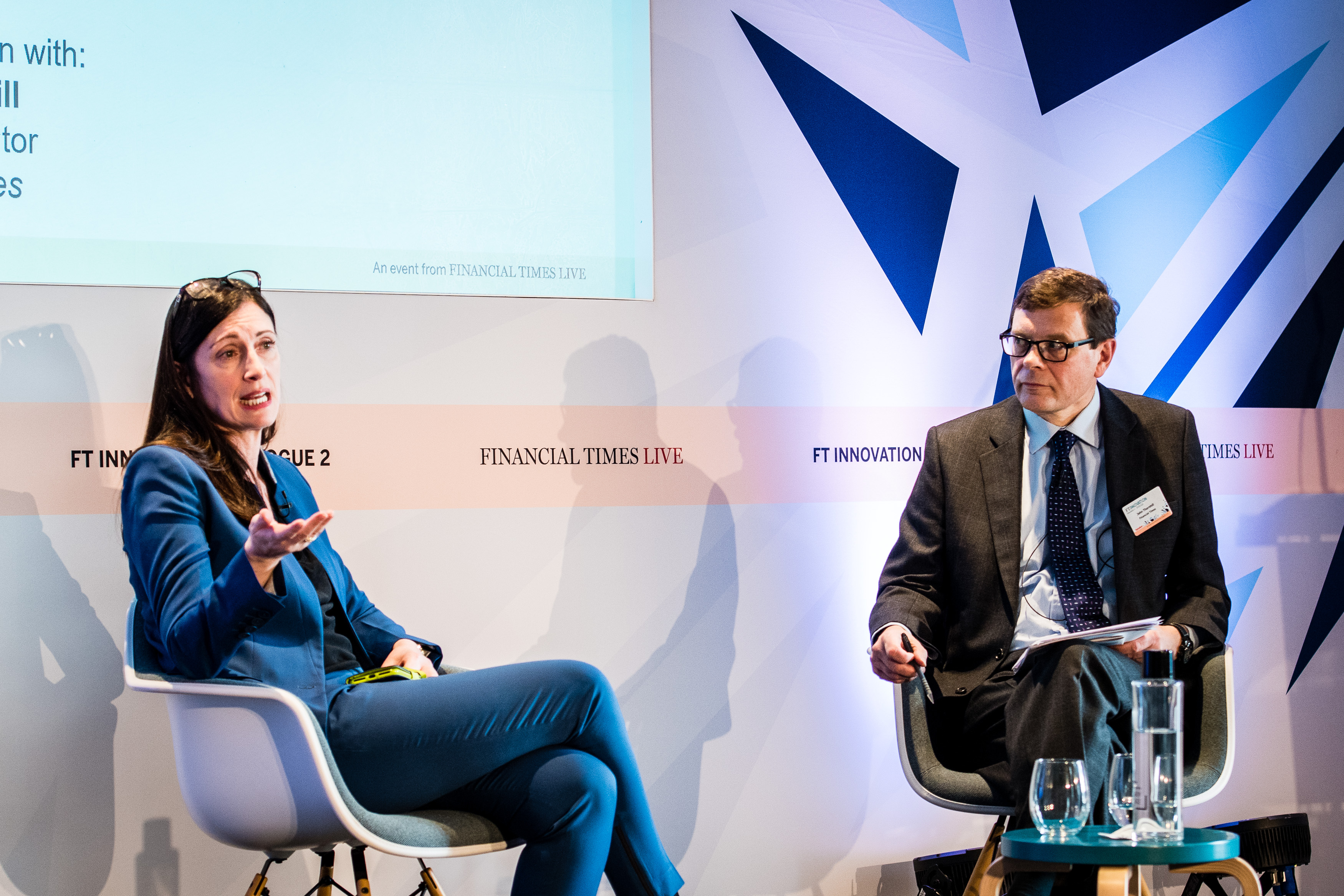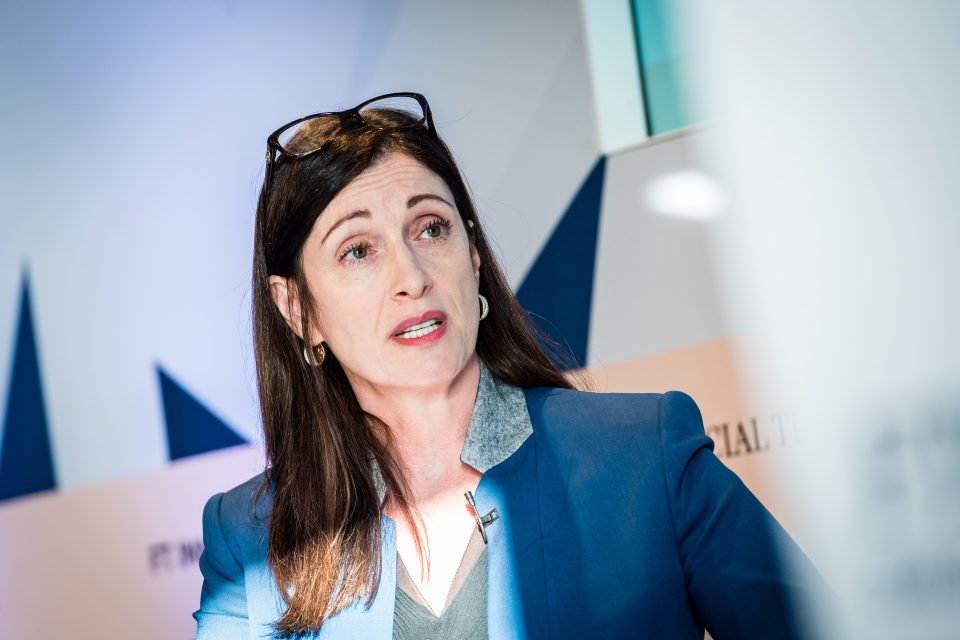Technology companies have a responsibility to tackle the UK’s digital skills gap, the chief executive of Microsoft UK has said.
Speaking at an event in London recently, Cindy Rose welcomed Government measures unveiled in the Budget to increase the number of computer science teachers but added that more needed to be done to ensure the country remained one of top digital economies.
She said Microsoft had launched a programme to help tackle the lack of digital skills.
“Probably the biggest constraint on growth for the UK economy and business is the lack of talent with the right capabilities and skills,” Rose said during an on-stage interview for the FT Innovation Dialogue. “It’s something we are very concerned about and committed to [tackling]. I applaud the Government for its recent announcements in the Budget to triple the number of computer science teachers and investments in AI and AI education, I think that’s great. Those are important commitments, but it’s not enough.

“Technology companies have a responsibility to help address this problem. Microsoft has made a number of public commitments, and earlier this year we launched our Digital Skills Programme. It includes making digital literacy and training available to the entire UK population for free, which we’ve done through an online portal; reskilling 30,000 public servants in cloud technology; training 500,000 new cloud-certified IT professionals; teaching coding to three million children; creating 30,000 technology apprenticeships – 50% of which I want to be female. That’s our commitment to digital skills and training. But it’s going to take a village, as they say.”
Rose had previously welcomed the Budget in a blog, writing that Microsoft and the Government shared the same goal of “wanting to build a hi-tech UK that’s fit for the future”.
The FT event heard from HSBC, Royal DSM and McKinsey & Company, among others, on how to adopt technology in the workplace and the changes in culture that are required to make the most of innovation. Rose said it was important companies had a diverse workforce with a range of skills when they embraced products such as cloud computing and artificial intelligence.
Read Cindy Rose’s response to the Budget
“You have to acknowledge that [digital transformation] is hard; it’s scary and uncomfortable for some people,” she said. “You are going to get people who flourish in that environment and they see the opportunity to blossom, you are going to get people who are, frankly, left behind; and you are going to get people in the middle who are very coachable. You need to support them and give them the training, tools and the development they need. This is not easy stuff, it’s a day-by-day exercise and you never finish digitally transforming.”
Microsoft recently published a study (below) that showed a widespread fear of change among staff when their companies introduced new technology to help them in their roles. Just under half (49%) of the people surveyed said they feared the change that comes with digital transformation. Sixty-one percent said they felt anxious when bosses brought in new technology, while 59% were worried about the impact the automation of tasks would have on their job.
“We are working with companies every day on their digital transformation, so we have to become experts at how you overcome and manage those things,” Rose added. “We are not speaking from a position of ‘let us tell you how to do it’, but from a position of ‘hey, we are doing this to ourselves, we’re going through it every day and it’s hard’.”
In order to help with its digital transformation, Microsoft is looking for staff who have technical skills and “emotional intelligence”, so they can explain its products in terms of the problems they can solve for businesses.
 Loading...
Loading...
“We’re a technology company and a platform, and our mission is to empower our customers to do great things with our technology,” Rose added.
“We are bringing in a lot of people from other industries, so we are getting a full cross-section [of staff]. It’s not just about hiring engineers, it’s about people with the ability to spot a problem and figure out what is in our technology toolbelt that can solve those problems.”
She pointed to how Microsoft is working with the RAC, a 100-year-old motoring service that is undergoing dramatic change.
“We are working with them on a telematics service where they put a sensor under cars that collects data on the driver’s behaviour and the vehicle. This means you can let the driver know in advance that their transmission is going to fail in 10 days’ time, for example. A whole range of new services can be built off the back of that technology.
Learn more about Microsoft’s Digital Skills Programme
“It’s about employing people who don’t wait for these trends to play out but anticipate them and take proactive steps now to get ahead of them.”
Rose is doing her bit to encourage young people, especially girls, to learn the skills needed for a world in which technology will become crucial to how companies operate. Separate research from Microsoft earlier this year found that teachers and parents in the UK have a five-year window to grow girls’ interest in science, technology, engineering and maths (STEM) before it starts to wane – between the ages of 11 and 15.
“I go out into schools once a month and talk to Year 8 and 9 girls about choosing careers in technology. That’s what I’m passionate about,” Rose said. “You have to open their eyes to how creative and fun the technology space is and the difference they can make in the world. This isn’t necessarily about heavy maths and engineering; there is a bit of a perception issue, and I have made it my mission to debunk that.”








